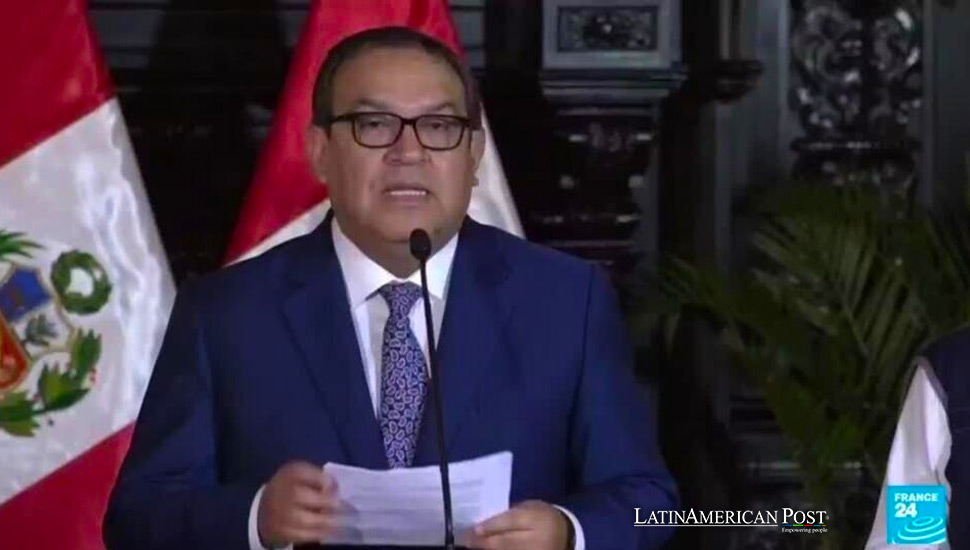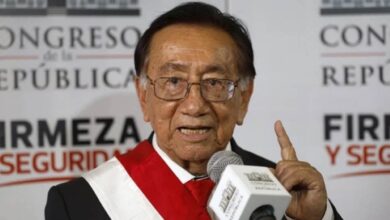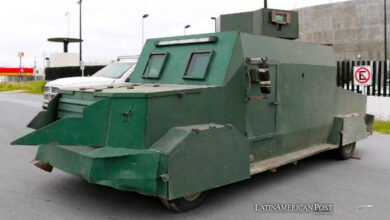Scandal and Resignation: Peru’s Political Crisis Deepens Amid Corruption Allegations

Peru’s political landscape is again embroiled in controversy as Prime Minister Alberto Otárola resigns over allegations of influence peddling for personal gain. This resignation casts a shadow over the government’s integrity and echoes broader corruption issues in Latin America.
In a dramatic turn of events underscoring the persistent challenge of political corruption in Latin America, Peru is at the center of a growing scandal. Prime Minister Alberto Otárola’s resignation, following allegations of using his position to secure lucrative government contracts for a close associate, has shaken the foundations of President Dina Boluarte’s administration and highlighted the endemic issues plaguing governance across the region.
The controversy erupted when Peruvian television broadcaster Panorama aired audio clips purportedly showcasing intimate conversations between Otárola, 57, and 25-year-old Yaziré Pinedo, who is alleged to have benefited from two defense ministry contracts worth 53,000 sols ($14,000) in 2023. Otárola, serving as Peru’s defense minister until his promotion at the end of 2022, vehemently denies any misconduct, asserting the recordings were manipulated to tarnish his reputation.
Despite their denials, the recordings have ignited a firestorm of criticism, leading to Otárola’s expedited return from an official visit to Canada. Under pressure from President Boluarte, his resignation has opened a Pandora’s box of political intrigue, with Otárola hinting at a conspiracy against him involving figures such as former Prime Minister Martín Vizcarra.
A Wider Latin American Context
The scandal in Peru is far from an isolated incident but indicates the pervasive corruption that has long afflicted Latin American politics. From the Odebrecht scandal that ensnared numerous countries and politicians in the region to ongoing investigations in countries like Brazil and Argentina, corruption looms large, undermining public trust and hampering efforts toward sustainable development and democracy.
In the immediate aftermath of Otárola’s resignation, President Boluarte faces the daunting task of reconstituting her cabinet, a process complicated by Peruvian law requiring all 18 cabinet members to tender their resignations. This political upheaval comes when Boluarte’s administration strives to stabilize the country’s governance and address widespread opposition to her leadership.
Peru’s history is replete with political instability and corruption, from the autocratic reign of Alberto Fujimori to more recent presidents who have faced allegations of misconduct. This recurrent pattern underscores the systemic challenges that Peru, like many of its neighbors, must confront in breaking the cycle of corruption and establishing a more transparent, accountable governance framework.
The Role of International Observers
The international community, particularly organizations dedicated to promoting democracy and combating corruption, such as Transparency International and the Organization of American States, will closely watch developments in Peru. Their role in providing oversight and support for anti-corruption measures will be critical in ensuring that the forthcoming electoral processes and government reforms in Peru and Latin America are conducted with integrity.
Amidst the political machinations and allegations, civil society’s voice remains a potent force for change. Grassroots movements, non-governmental organizations, and the general populace are increasingly vocal in demanding accountability from their leaders and advocating for systemic reforms to eradicate corruption. These collective efforts are essential in fostering a culture of transparency and ethical governance.
Looking Forward: Peru’s Path to Redemption
As Peru navigates this latest political scandal, the road ahead is fraught with challenges. Yet, it also presents an opportunity for meaningful reform and renewal. President Boluarte’s response to the crisis and the actions of Peru’s political class and civil society will determine the country’s trajectory toward a more transparent and just society.
In the broader context of Latin America, Peru’s experience serves as a cautionary tale and a beacon of hope. The region’s struggle with corruption is a complex issue that requires concerted efforts at all levels of society and governance. By learning from each other’s experiences and fostering a regional approach to combating corruption, Latin American countries can aspire to a future where integrity and accountability define their political landscapes.
Also read: Peru Unveils 3,000-Year-Old Ceremonial Temple as A Beacon of Ancient Rituals
Alberto Otárola’s resignation amid allegations of influence peddling is more than a national scandal; it reflects the endemic corruption that challenges the fabric of Latin American democracies. As Peru and its neighbors grapple with these issues, the collective resolve of governments, civil society, and the international community will be pivotal in shaping a region characterized by fairness, transparency, and respect for the rule of law. The journey is long, and the obstacles are many. Still, pursuing a corruption-free Latin America is a goal worth striving for, promising a brighter, more equitable future for all its citizens.





